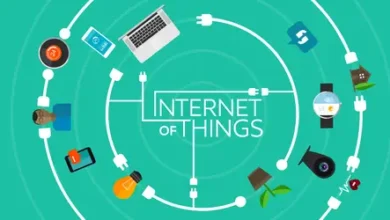Sustainable Technology Solutions: Innovations Addressing Environmental Challenges

In an era where the negative impact of human activities on our precious environment is becoming distressingly apparent, it has become crucial to explore all possible solutions to mitigate these effects. This makes a compelling case for “Sustainable Technology Solutions: Innovations Addressing Environmental Challenges”, a post that delves deep into how technology can be harnessed in the fight against ecological degradation. It explores groundbreaking tech innovations and ventures into their potential applications for environmental sustainability. From renewable energy sources, waste management systems, carbon capture technologies to green transportation alternatives – we will scrutinize them all! So let’s embark together on this eye-opening journey towards understanding how state-of-the-art sustainable technology might just be our ticket out of looming environmental crises, while promoting healthier ecosystems for generations yet unborn.
Exploring the Concept of Sustainable Technology
“Exploring the Concept of Sustainable Technology” Sustainable technology represents a crucial approach in addressing pressing environmental challenges. By prioritizing energy efficiency, waste reduction, and resource conservation, sustainable technology aims to minimize the negative impact of human activities on the planet. Innovations in this field span various sectors, from renewable energy sources like solar and wind power to eco-friendly materials and smart devices that optimize resource use. The concept of sustainable technology emphasizes the importance of creating solutions that not only meet current needs but also ensure the well-being of future generations. Through continuous research and development, sustainable technology offers a pathway towards a more environmentally conscious and resilient society.
Significant Innovations in Sustainable Technology
Over the past decade, there have been remarkable advancements in sustainable technology solutions that are addressing environmental challenges. One key innovation is the development of renewable energy sources such as solar and wind power, which have significantly reduced reliance on fossil fuels and lowered greenhouse gas emissions. Another area of innovation is in waste management, with the introduction of advanced recycling technologies that promote a circular economy and reduce waste sent to landfills. Additionally, sustainable agriculture practices utilizing precision farming techniques and vertical farming methods have minimized water usage and increased crop yields. These innovations showcase the potential for technology to play a crucial role in creating a more sustainable future for our planet.
The Role of Technology Solutions in Addressing Climate Change
Technological solutions play a crucial role in addressing the pressing issue of climate change. Innovations such as renewable energy sources, energy-efficient technologies, and carbon capture systems are key in reducing greenhouse gas emissions and mitigating environmental impacts. These sustainable technologies not only help in transitioning towards a low-carbon economy but also promote resource efficiency and conservation. Additionally, advancements in smart grid systems, electric transportation, and sustainable agriculture practices further contribute to the fight against climate change. It is imperative for governments, industries, and individuals to embrace these technological solutions to drive positive environmental outcomes and create a more sustainable future for generations to come.
Case Studies: Successful Implementations of Sustainable Technology Solutions
Several case studies showcase the successful implementation of sustainable technologies in addressing environmental challenges. One notable example is the integration of solar power systems in a commercial building, reducing greenhouse gas emissions and energy costs significantly. Additionally, the implementation of water recycling systems in a manufacturing plant has led to a substantial decrease in water consumption and wastewater discharge. Another success story involves the adoption of electric vehicles for transportation fleets, reducing carbon emissions and reliance on traditional fossil fuels. These case studies demonstrate the tangible benefits of incorporating sustainable technologies in various sectors, highlighting the positive impact they can have on both the environment and businesses’ bottom line.
Challenges and Future Perspectives on Environmentally Focused Tech Innovations
Despite the progress made in developing environmentally focused technology innovations, several challenges remain. One key challenge is the limited adoption of these solutions due to high costs and lack of awareness. Additionally, there is a need for more research and development to improve the efficiency and scalability of these technologies. Regulatory hurdles, such as inconsistent policies and standards across different regions, also pose a barrier to widespread implementation. Moving forward, it is essential to prioritize collaboration between governments, industries, and academia to drive innovation and address these challenges. By investing in research, fostering partnerships, and promoting sustainable practices, we can pave the way for a greener future powered by technology.





